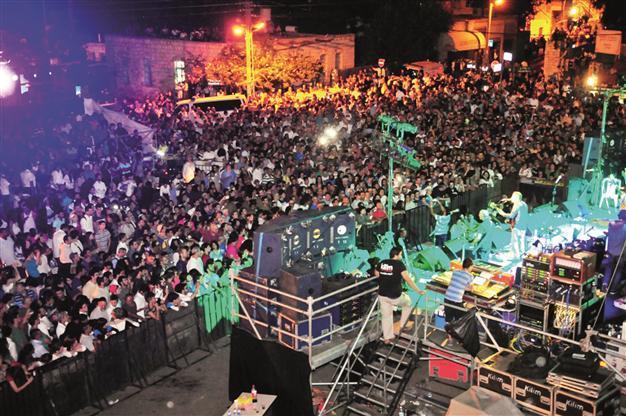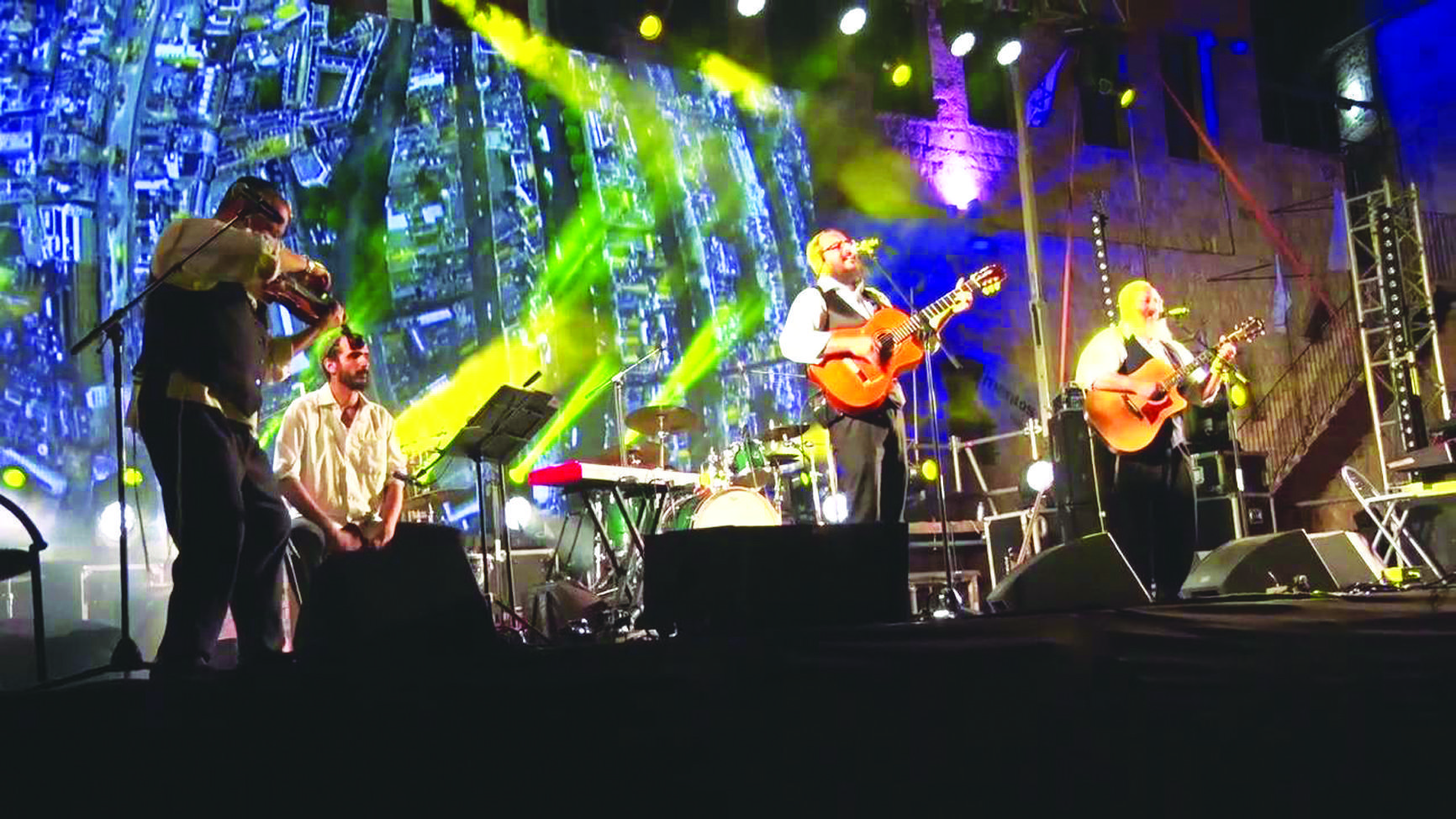Music and dancing in Tzfat instead of rockets
TZFAT, Israel

The summer of 2006 did not bring peace and quiet to northern Israel, including Tzfat, a town of about 30,000 people and the capital of Galilee, close to the border with Lebanon. Tzfat got its share of the daily rockets coming from Lebanon. Two locals died and several others were injured.
“The town was pulling through with all of its citizens - side-by-side,” recalls Mayor Ilan Shohat. “A considerable part of the staff at the medical center in Tzfat is non-Jewish. No one missed a day’s work, no one refused to treat anybody.”
Little seems to have changed since then, apart from the unfortunate. Today, the medical staff at the hospital is working side-by-side, like in 2006, but this time they are treating several wounded Syrians who have been forced to flee the punishing civil war in their home country. “Like in the past, no one is asking the other which side they fight for,” Shohat says.
In the summer of 2015, nine years later, Tzfat was not quiet either, however this time it was not rockets coming from Lebanon but the tunes played by several Klezmer bands, the loud cheers of the festival’s participants and crowds dancing in the streets of the old town creating all the noise.
Tzfat had its 28th International Klezmer Festival on Aug. 18 and 20. About 100,000 people from across the globe poured into the town during the festival, including Jews, Christians, Muslims, Circassians and Druze.
“As it stands today, the population in Galilee is made of many non-Jews living side-by-side with the Jewish population. As in everyday life in this region, the various religious and ethnic groups live and work side-by-side and mix and mingle on a daily basis,” said Shohat.
The festival has never had a political message, according to city officials. “The joy that the music brings and the international language that it speaks are the purpose and the success of the event,” said one official. “It is not trying to send a message to anyone – other than the fact that it celebrates the music and the people who enjoy it.”
The festival is what the locals call a “street event,” trying to appeal to as many people from all around the world as possible. Even though it started out as a festival concentrated primarily on the genuine sound of eastern and western European Jewish soul music, it grew more and more popular and other trends and artists were brought in, enlarging the genres and repertoire featured as long as they had the “soul connection” to the event.
But Klezmer music remains at the heart of the event. It is one of the biggest events on the Israeli cultural calendar. Not many towns in the world attract crowds from all around the world and at three times the size of their local population.
Like in previous years, some of the best Klezmer musicians performed this year on stages set up in the old historical alleys of Tzfat. There were also other activities including a stage for “Klezmerim for Kids,” tours and workshops in the spirit of the Kabala and more.
Among the artists appearing this year were new great performers such as Dudu Tassa and Miri Mesika and outstanding artists who have been here before. Among them were Yonatan Razael, Yishay Rivo, the Lechatchila group, Pirchei Yerushalaim and Neshot Hava, Mussa Berlin, Daniel Zamir, the Reim Duo with Shlomo Bar, Marsh Dendorma, Israel Zohar the international violinist, Eyal Shiloah, the artistic manager of the festival in recent years, Simply Tzfat, various local ensembles and international ensembles and artists such as the Hamburg Kleizmers, Kleizmer London Hamsa and more. In addition, as per popular demand, there was a special stage for artists from the ex-Soviet Union, including The Besarabia Group, Michael Gorodzky, Arkadi Goldstein, Trio Moldova, Sania Kreuter and the Acoustic Drive, Kleizmer Spiel and others.
“For 28 years the International Klezmer festival, one of Tzfat’s prominent symbols, and one of the largest and longest running festivals in Israel, has been celebrated,” said festival chairman Yigal Shitrit.
 The summer of 2006 did not bring peace and quiet to northern Israel, including Tzfat, a town of about 30,000 people and the capital of Galilee, close to the border with Lebanon. Tzfat got its share of the daily rockets coming from Lebanon. Two locals died and several others were injured.
The summer of 2006 did not bring peace and quiet to northern Israel, including Tzfat, a town of about 30,000 people and the capital of Galilee, close to the border with Lebanon. Tzfat got its share of the daily rockets coming from Lebanon. Two locals died and several others were injured. 